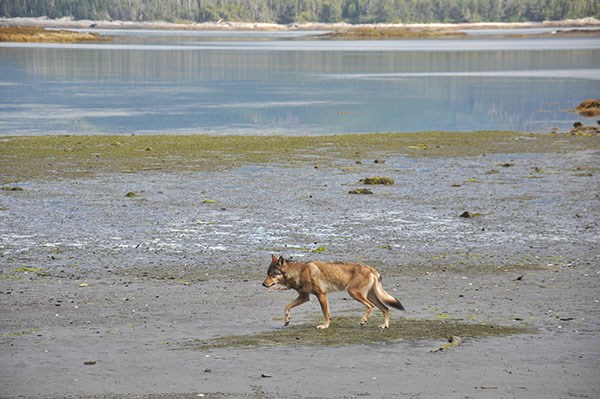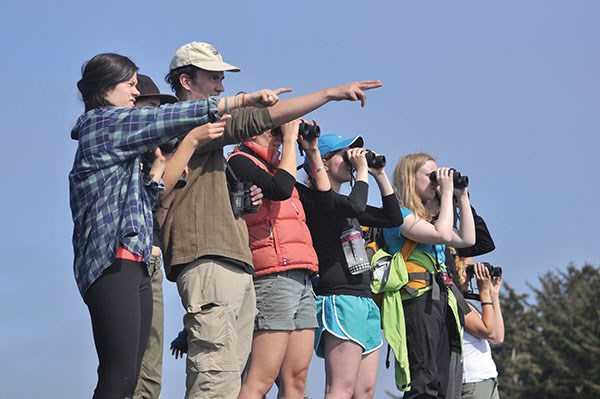Quest University instructor Chris Neufeld originally took his behavioural ecology class to a remote island in Kyuquot Sound to observe sea otters, but what they discovered set a surprising new path for their research.
“We found evidence that the wolves were eating sea otters. This was certainly strange,” said Neufeld, who will be making a presentation on Jan. 17 as part of the Brackendale Winter Eagle Festival’s Natural World Lecture Series.
Although coastal wolves in that area of northwest Vancouver Island are known to supplement their land-based diet with marine creatures such as salmon, mink, small crabs and barnacles, the class’s field trip in May led to a novel discovery of otter carcasses that had been partially eaten and moved to inland sites.
Neufeld and the students also took wolf scat back to the lab to analyze what the predators were eating.
“We found quite a bit of evidence. It turned out to be extensively sea otter,” said Neufeld.
Their work, however, is still in the initial stages, and the class is collecting more evidence to see if the hypothesis holds up.
The best scenario would be to catch the wolves in the act, but despite setting up cameras, they haven’t yet captured footage of wolves hunting sea otter.
The island’s original wolves swam over two and a half years ago from the mainland, Neufeld said. The small population increased this spring when a large litter of pups – eight in total – was born and survived into the fall, he added.
Wolves are long known as opportunists that will hunt whatever comes their way, and a select few prowl the perimeter of the island one to three times a day on foraging missions, said Neufeld. “They are somehow able to catch the sea otters.”
The hypothesis is that the wolves ambush while the otters are briefly on land.
Sea otters may be the perfect prey, since their numbers have rebounded in the region since being re-introduced from Alaska during the late 1960s just north of the area in question. The original population was decimated during the fur trade in the 18th and 19th centuries.
Neufeld, who initially intended to study botany, changed his focus to marine biology after he became interested in coastal habitats. After completing his undergrad at the University of Victoria, he went to the University of Alberta to obtain a PhD in ecology. Although his school was located in a landlocked province, he spent most of his time on the west coast of Vancouver Island studying how marine organisms respond to different environments.
Neufeld’s presentation is part of the 30th annual Brackendale Winter Eagle Festival, a month-long event that also includes concerts and an art show.
The presenters share their experiences to bring awareness of how the complex ecosystem interacts with the natural environment. The other presenters are Brian Chatterton, who will discuss paleontology in Canada and several other countries, on Jan. 10; Kimberly Dawe, an expert on how climate change is affecting animals, on Jan. 24; and archaeologist Ruby Reimer/Yumks, who will talk on Jan. 31 about an ancient stone bowl discovered in the Squamish River that may have been used in a First Nation ceremony. All lectures take place at 8 p.m. at the Brackendale Art Gallery.




